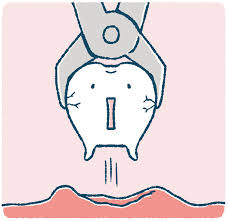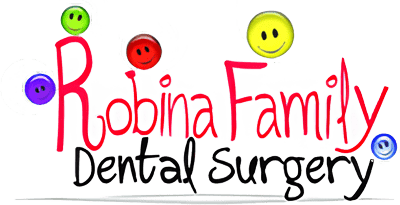What Next-o After An Exo (Extraction)?

In the First Hour
You will come out of the dental surgery biting on a gauze pad to reduce bleeding. Bite on this gauze pad for 10 minutes. After 10 minutes, you can remove it. Removing the gauze may cause the blood clot formed to dislodge and this may cause a bit of blood to ooze. This is normal and you just have to spit that out.
Do not rinse as this would keep washing out the blood clot that you need to form in the socket for the healing process to begin. However, if the socket bleeds a lot (and that means blood is pumping out) after you remove the gauze pad, you can bite on a second one for another 10 minutes. If you run out of gauze pads, you can bite on a moistened tea bag as the tannin in the tea helps with coagulation. Biting on a moistened gauze pad placed in the freezer for about 20 minutes can also help with slowing down the bleeding.
Take it easy for the rest of the day. Do not exert yourself and certainly do not run around the block!

In the First 8 Hours
For the first eight hours, you can gently brush everywhere except the operated area (leave it for three days before you start brushing the area again). Rinse gently with warm saltwater after each meal to clean out any food that may have lodged in the socket.
If you have:
- Wisdom teeth surgically-removed, do not open your mouth too widely as this will disrupt the healing process.
- Upper molars or wisdom teeth removed, do not blow your nose until the socket has healed over (which may take 1-2 weeks) as the roots of these teeth are very close to the sinuses.
- A runny nose, just dab or take an antihistamine to dry up your nose.

In the First 24 Hours
Do not disturb the area around the extracted tooth by biting, rinsing (except after meals), swishing, sucking, smoking or poking the area with your tongue, finger or other objects. The first 24 hours is when a blood clot forms. Any disturbance of the area will dislodge the clot, allowing the bleeding to continue. Instead, chew on the opposite side of your mouth to avoid any food entering into the socket. And definitely avoid smoking (otherwise your rate of healing will significantly decrease and there is also a high chance of a dry socket forming).
Pain after extraction is very normal. To manage the pain, take any non-ibuprofen painkillers (e.g. paracetamol) every three to four hours. Even if the anaesthesia is still working by the time you leave the dental surgery, you should still take pain relief. When the anaesthesia does wear off, you will not feel the pain at its most intense. Be careful not to chew your lip, cheeks or tongue while the anaesthesia is still working. To avoid nausea, do not take pain relief on an empty stomach.
Swelling after extraction is also normal. Apply an ice pack over the operated area for 15 minutes, then remove the ice pack for 15 minutes, and repeat this for the first day.
You will probably not be feeling up to it anyway but avoid any strenuous activity in the first 24 hours. Take this as the perfect opportunity to rest and relax. The lower your blood pressure, the less you will bleed and the more the wound will heal.

After 24 Hours
You can gently rinse your mouth with a saltwater solution. This staves off any potential for infection forming in the socket. Do not use commercial mouthwashes as the chemicals may aggravate the wound.
In the First 2 Days
Change your diet to soft foods for the first two days. After this, you can go back to eating regular meals. (Of course, ensure you chew on the other side of your mouth.)
Drink heaps of water to help the healing process.
Do not drink alcohol for the first two days (alcohol makes a particularly poor combination with medicines and painkillers).

In the First Week
If you were prescribed antibiotics, ensure that you finish the course even if your symptoms have gone.
Be aware of your body. Do not hesitate to contact your dentist if you experience:
- Uncontrollable pain;
- Excessive bleeding or swelling; or
- Any other issues that concern you.

